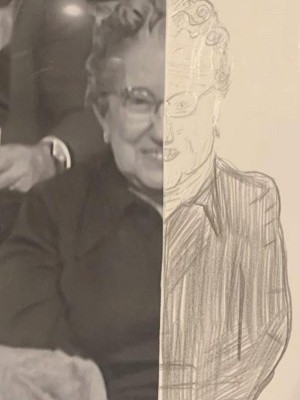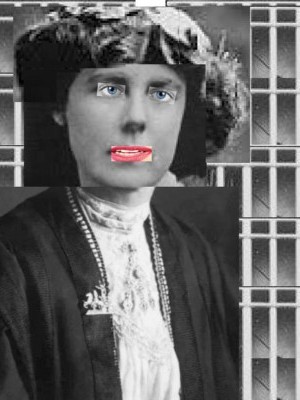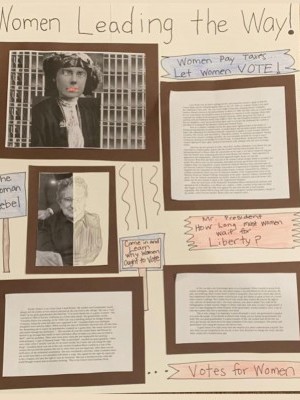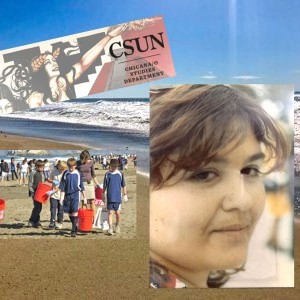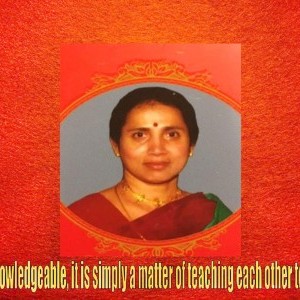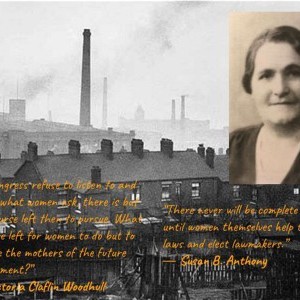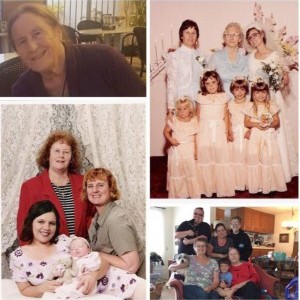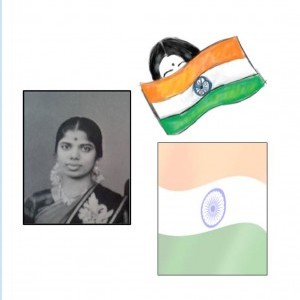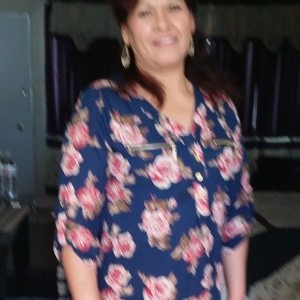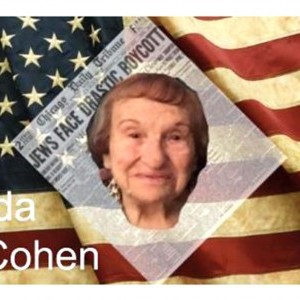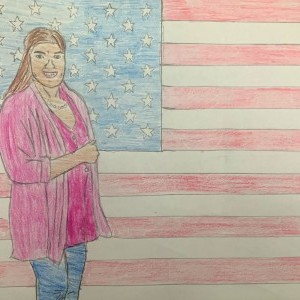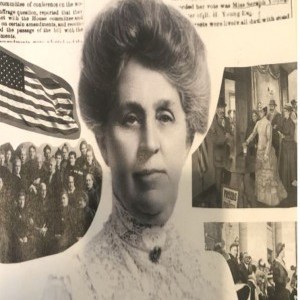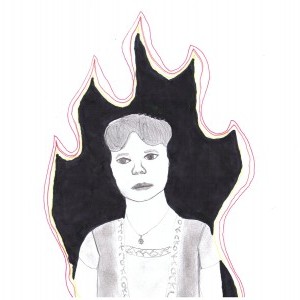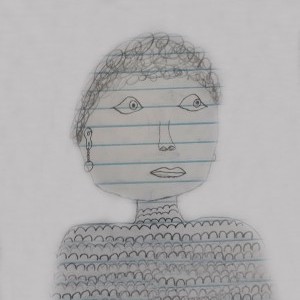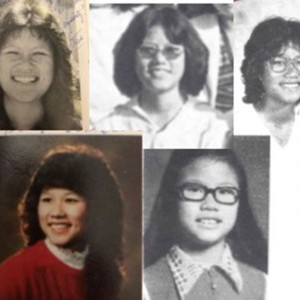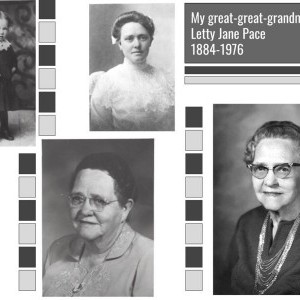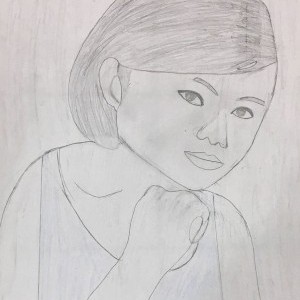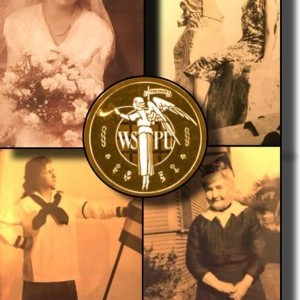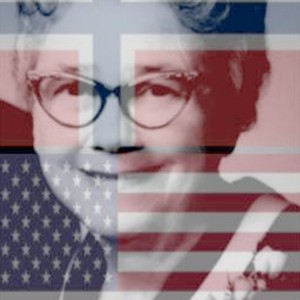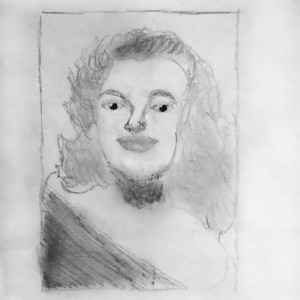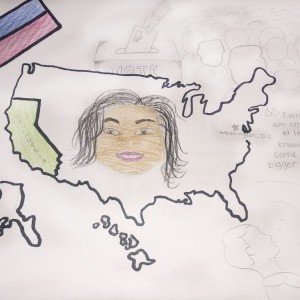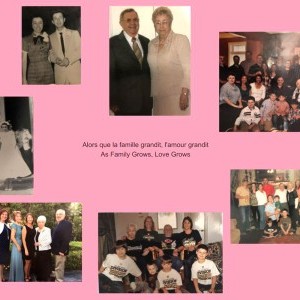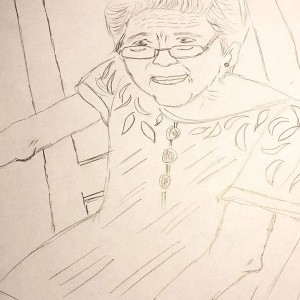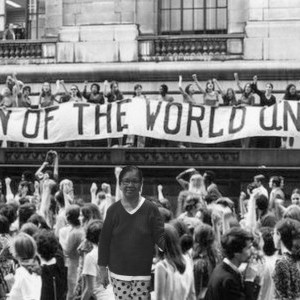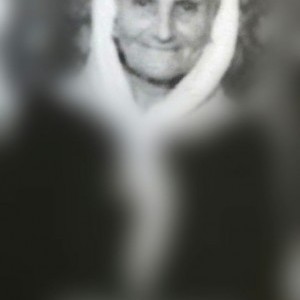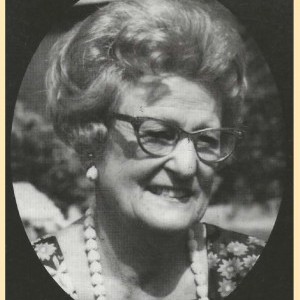Kaden Epstein
Adolfo Camarillo High School | Camarillo, CA | 10th
Inspirational Family Member
My Great-Great-Grandmother
Dorthy Wuertz is my great-great-grandmother. My mother and grandmother would always tell me stories of how tactical and precise she was even in her old age. She was a “card shark” as my great-grandmother described her: “I’ve never beaten her in a game of poker.” She was born in 1903 in Encino, California to a lower-class family. My grandmother recalls, “Grandma Dorie was amazing.
In the 1950s she was a traveling auditor for Budget Finance Company, doing the work that men were supposed to do.” Grandma Dorie was intelligent, thoughtful and cared for others. When nearing her days of retirement she even took off time from her demanding job to watch my grandmother compete on a game show. Her moral character was articulated through her profession, “She traveled all over the United States and Hawaii by herself to go through financial books in each individual office to make sure there was no fraud or theft,” said my grandma. There were even times when she was responsible for catching embezzlement, a type of financial fraud. “She worked hard,” recalled my great-grandma, “there were times when I wouldn’t see her for an entire month, but I knew she was doing the right thing.”
Grandma Dorie worked in a time when women did not hold the position she was in, when there was not equal pay, and when there was no ratification of the Nineteenth Amendment. She was considered a secretary, when in modern times she would have been a vice president with better a wage. She argued for her right for equal pay in her company and later her right to vote as an American. She was a businesswoman when the world thought women had no business working. This is my great-great-grandma Dorie.
Historical Figure I Admire
Lucy Burns
Lucy Burns, an ardent suffrage activist, strived for women’s rights in both the United States and the United Kingdom. Born on July 28, 1879, to a Catholic family, Lucy spent her childhood in New York. She was a very bright young lady, attending Packer Collegiate Institute formerly known as Brooklyn Female Academy in 1890. She later when on to teach there for two years before she decided to move to Germany to continue to study language. Burns later continued her studies at the prestigious Oxford University, where she got her first taste of activism with the Pankhurst family from 1909 to 1912. She met Emmeline Pankhurst along with her two daughters. Lucy was so moved by their work in activism that she abandoned her studies to join them in working for the Women’s Social and Political Union.
Now as a women’s suffrage activist she spent many vigorous hours in the streets of Europe giving speeches on street corners, at market places and anywhere people would stop and listen. Her enthusiasm for activism eventually caused her to appear in court on many different occasions. Her actions were described as "disorderly conduct" in numerous newspapers. During the time of her women’s suffrage speeches, she was eventually arrested for trying to stop a Limehouse meeting on the budget, by Lloyd George. In prison Burns, along with many other women fighting for their rights, refused to do prison work, damaged cells and went on hunger strikes.
There she met her partner in crime, Alice Paul, another suffragette. Lucy Burns first met Alice Paul in a London police station after the women had both been arrested. Paul was introducing herself to Burns when she noticed that on her lapel, Lucy had an American flag pin. Soon the women were comparing activism in Great Britain and America. They "were opposites in appearance and temperament...whereas Paul appeared fragile, Burns was tall and curvaceous.” Both Paul and Alice took part in the women’s prison hunger strikes to persuade but, unlike Paul, Burns took it to the extreme and ended up having to be force-fed in prison. Together these two magnificent women formed the National Woman's Party and were a part of the National American Women Suffrage Association as Congressional Committee.
Both women emphasized the importance of having a political party, in power, responsible for a federal suffrage amendment. Burns was now an executive member of the Congressional Union of the National American Women Suffrage Association as her peers voted for her without a doubt in their mind. Once the Anthony amendment was finally voted on by committee and in the house, Lucy Burns was the first woman to speak to the congressional delegates.
After the ratification of the Nineteenth Amendment, Burns retreated from activism, and returned to life in Brooklyn. Lucy Burns was a fighter, a rebel, a symbol of the American heart. She fought on even when the odds were against her and when the task at hand seemed impossible. Her zealous efforts along with many other courageous women articulated a change in the world, a strive for true equality. Burns is the true American spirit.
What the Project Means to Me
In life, we take a lot of privileges given to us for granted. When I started to research my suffragette, along with my own family history I was bewildered by all the adversity, the pain, and suffering, these women faced in times of inequality. Over and over, article after article, they emphasized what these women would do just to get the chance to speak in front of a crowd about women’s suffrage. But I asked myself why would these women die just for the right to vote? Millions of Americans don’t vote every election, why does it matter? As I read all the bibliographies of these women I began to realize what they were after, it wasn’t to gain power, it wasn’t to start changing the whole dynamic of the government, women wanted a voice, a say in rules the country they live in and deeply care about.
This is why voting is so important, it gives the people a voice, the government’s purpose is to serve the people. If you decide to abstain from voting, you are letting the government rule itself. My own great-grandmother is a great example of this, she worked hard all her life, but never got the pay she deserved or the equal treatment of her male counterparts. The society and government were ruling her because she had no voice.
A good lesson I’ve taken away from the research is to never underestimate yourself. You may think you are insignificant but you do, in fact, have the power to change the world, just like these women did a hundred years ago.
Explore the Archive
More From This Class
Click on the thumbnails below to view each student's work.Deadline Extended
There's still time to join Women Leading the Way.
Become a part of our storytelling archive. Enroll your class today.
Join the Project

